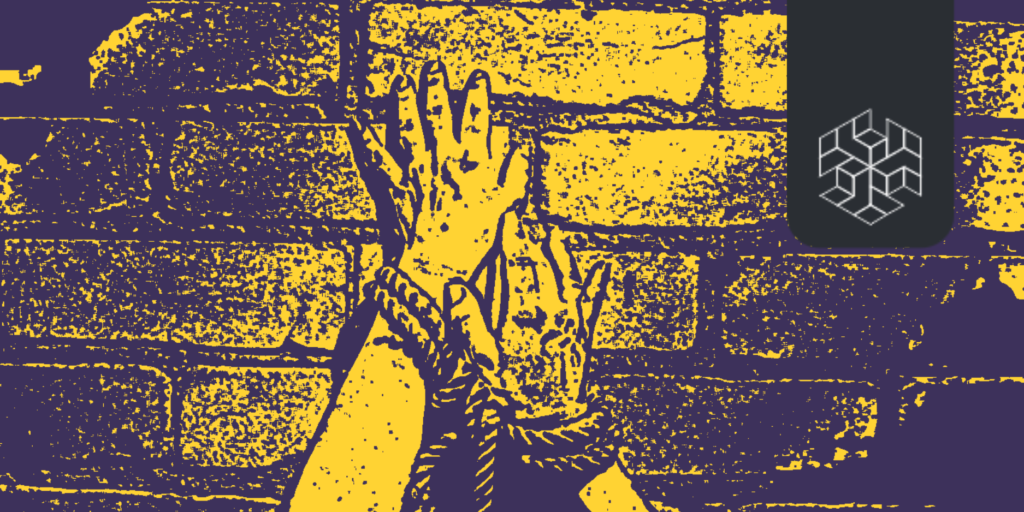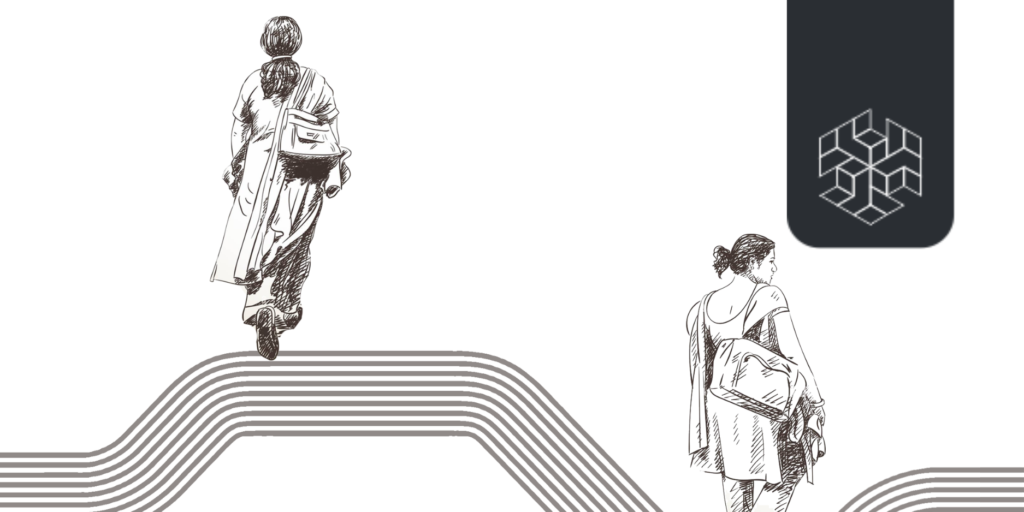Author: Anusha Arif
Background: Theory of Capital Punishment and Law Commission Reports
Capital Punishment involves the legal killing of a person who has committed any crime punishable by death under a legal system, such as terrorism or murder. The practice of capital punishment has existed in all nations across the world. In India, capital punishment remains a highly debatable form of punishment. Under the Indian Penal Code, offences such as murder, treason, terrorism and drug trafficking are punishable with death. However, human rights activists have consistently opposed capital punishment or the death penalty. A report published by Amnesty International (Amnesty International, 2023) highlights the reasons behind advocacy against the death penalty and gives supporting facts and figures related to the number of death penalties in the world. A total of 20 countries have executed 833 people combined in 2021, which marked a 53% increase since 2017 (Amnesty International, 2023).
In India alone, 165 death sentences were imposed by trial courts in 2022 (Menon, 2023). According to Project 39A, 539 people were living on death row; making it the highest over the last two decades. This newly revealed data has brought back into light the discussion on the validity and social acceptance of death penalty in India.
The theory of capital punishment is based on the principle of deterrence. It argues that by setting a punishment as high as that of death, the possible future occurrence can be reduced by discouraging other wrongdoers. However, it does not focus on the prevention of crime by the already convicted killer. The theory thus rests in a societal context to reduce the recurrence of similar criminal activity. Yet, this principle has proved to be untrue in reality. In fact, a study conducted on the US legal system in four different states showed no evidence as to whether the death penalty contributed to deterring similar criminal activity or not (Oliphant, 2022). In India, the death penalty has been tied to the ‘rarest of the rare cases’ (AIR, 1980) dictum. Nonetheless, current data shows that the death penalty is awarded in a range of cases by trial courts based on varied notions of the doctrine of individual judgement. This also raises questions on the primary principle of deterrence that the theory rests on.
Similarly, the principle also rests on generalised assumptions, such as the existence of a like-minded homogenous society where every person is rational. It also presupposes the existence of crime in a conscious and rational stage with prior knowledge of the punishment one might face. Among other evidence on the impacts of the death penalty, most comparative analyses show no evidence tending towards a reduction in crime rates (Shyam, 2021).
The 262nd report (Shah, 2015) of the Law Commission of India also takes the view that the death penalty should be abolished, based on an extensive study. It discusses the need for reassessing the 35th Law Commission Report based on questions that arise from sections of public opinion over the severity of capital punishment and the disregard for human values. The Commission highlights the need for the legal system to move towards a restorative system of justice, which has gained widespread dominance over legal systems globally. This change in approaches also stems from modern approaches to human rights, criminal psychology and a rejection of the ideas of retribution through punishment.
II. Constitutional validity of Capital Punishment
The constitutional validity of capital punishment has often been challenged. While India has a low rate of execution, unlike other countries such as Saudi Arabia, which is known for its high execution rate, the courts remain hesitant in abolishing it completely. Yet, the Supreme Court of India, while upholding the constitutional validity of capital punishment, has guided the trial courts to consider mitigating circumstances which would lead to a lenient form of punishment (Poddar, 2022). The Supreme Court also reiterated, in its judgement, that the death penalty cannot be awarded on the grounds of “public opinion” and that a fair trial is the primary prerequisite for any form of punishment.
However, the court has upheld the constitutional validity of the death penalty in landmark cases such as Jagmohan Singh V. State of UP, where the court rejected the argument that it violates the fundamental right to life. Yet, the opinions have not been consistent. In Rajendra Prasad V State of U.P, Justice Krishna Iyer stressed that the death penalty was, in fact, violative of articles 14, 19 and 21 and must only be imposed in extraordinary circumstances. This opinion also resonated in the overruling judgement of Bachan Singh V. State of Punjab, where a five-judge bench gave ‘rarest of rare cases’ doctrines. The court overruled the Rajendra Prasad judgement, upholding the constitutional validity of the death penalty.
In more recent times, the court’s opinion on the death penalty is reflected in judgements such as Manoj Pratap Singh V. State of Rajasthan, where the court upheld the death sentence awarded to the accused for the rape and murder of a minor girl with disabilities. The court opined that “It has never been the effort of the Courts to somehow make the death penalty redundant and non-existent for all practical purposes.”
iii. Human Rights Perspective and Socio-Economic Profiling
Although the death penalty remains legal in most countries, the international human rights wave for abolition started in the early 1960s. The International Covenant on Civil and Political Rights (ICCPR) guarantees the right to life under Article 6 and contains important safeguards to be followed by the signatories with regard to the death penalty.
India is a signatory to the Universal Declaration of Human Rights and has also ratified the ICCPR; however, the country has not ratified the second optional protocol aiming to abolish the death penalty (ICCPR-OP2) (ADP,2018). More recently, at the UN General Assembly in December 2022, India opposed a draft resolution calling for a moratorium on the death penalty. With this opposition, India has now become a part of a group of few countries that have not abolished the death penalty. Since the year 2000, only eight executions have been carried out in India. (Suresh, 2023). Although this number is small it is still considered a strong indicator of India’s stand.
The International Commission Against Death Penalty puts forth compelling arguments to consider countries to abolish the death penalty (ICADP, n.d). Some of the main arguments are, firstly, the evidence that the death penalty does not deter crime effectively. The Commission also discusses the impacts of public opinion, sentiment being a major stumbling block for abolition. However, this primary reason feeds into a mob mentality for demanding punishment.
Furthermore, one major gap in death penalty sentencing is the possibility of wrongfully executing innocent people. The irreversibility and irreparable results of the death penalty go against human rights and dignity.
Another inherent flaw of the death penalty is revealed from the lens of socio-economic profiling. Data from a study attempted by National Law University, Delhi scholars and legal researchers revealed that out of 385 prisoners on death row between 2014 to 2016 across 21 states of India, 241 did not have any previous criminal record (Surendranath, 2016). The study also shed light on aspects of economic vulnerability and found that nearly 74.1% of those interviewed were found to be economically disadvantaged and were previously employed as manual casual labourers such as auto drivers, brick kiln labourers, etc. or low-paying private or public servants (Surendranath, 2016). The increase in economic vulnerability of families of the prisoners also increased in most cases due to them being the primary/sole earner of the family.
The social profile of prisoners on death row also revealed that nearly 34.6% belonged to backward classes, 24.5% came from scheduled castes and scheduled tribes, and 20.7% came from religious minorities. In total, 79.8% of the total number of death row prisoners came from socially vulnerable communities (Surendranath, 2016). The results of the subjugation and lack of adequate legal representation is also aggravated by these economic and social vulnerabilities, not only for the prisoners, but also for the family of the prisoners.
iv. Wrongful Execution and Clemency
Between December 2021 and November 2022, the Supreme Court of India acquitted as many as eight accused persons who had spent an average of a decade in prison. The court held that in these cases, prosecution had not proved guilt ‘beyond reasonable doubt’ (Basarkar & Jain, 2023). The legal systems extend protection to innocent persons following the maxim, ‘Let hundred guilty be acquitted but one innocent should not be convicted’. This maxim sets the ground for presumptions for a fair criminal trial, including the presumption of innocence until proven guilty and even the concept of ‘guilt beyond reasonable doubt’.
Justice P N Bhagwati, who stood as a staunch opponent of death penalty, voicing his dissent in Bachan Singh case, mentioned the impossibility to eliminate the chance of judicial error. In 2012, fourteen former judges of the Supreme Court had different High Courts had written to President Pranab Mukherjee asking him to commute the death sentences of nearly 13 convicts. The pardoning or clemency powers rest with the President or Governor under the Indian Constitution to grant pardon, respite, reprieve or remission of punishment. The President or Governor can also commute the sentence of any person convicted of any offence. In the letter addressed to then President Shri Pranab Mukherjee, the judges pointed out the examples of Ravji Rao and Surja Ram who have been wrongly executed (Chhibber, 2012).
Ravji Rao was hanged in 1996, only three years after he was found guilty of the murder of his pregnant wife by the Rajasthan court; the Supreme Court further confirmed his sentence. However, in 2009, thirteen years after his execution, the Supreme Court made note of the error in Santosh Kumar Satish Bhusan Bariyar V. State of Maharashtra. The court declared that the judgement was based on per incuriam (denotes carelessness). In the same year, the Supreme Court of the country also admitted that it had wrongly sentenced 15 people to death in 15 years. This makes the error rate of death penalty sentencing nearly 25%, which is alarmingly high, considering this form of punishment is reserved for ‘rarest of the rare’ crimes by the Indian judiciary itself.
The judicial system, which bases itself on the evidence produced before it, also recognised the shortcomings of the lack of a proper investigative process by the policy, as in the case of Dhananjoy Chatterjee. Chatterjee was hanged for the rape and murder of a minor. However, subsequent Supreme Court judgements in 2013 and analysis by Indian Statistical Institute professors found that neither the medical examination nor the criminal test corroborated the evidence provided by the police. Dhananjoy had also maintained his innocence through the 14-year period he served in jail. His last words to his executioner were, “Ami nirdosh. Amake mere phelcche shob” (I am innocent. They are killing me) (Bhattachareyya, 2017).
v. Conclusion
The possibility of ruling out judicial error from any death penalty remains very limited due to the tricky nature of crime and related evidence. However, in more recent times, the Supreme Court has leaned towards awarding capital punishment only in cases of terrorism, inciting violence or/and heinous crimes. However, the hesitation of the Indian judicial system to allow for the abolishment of capital punishment continues to show its commitment to the deterrent theory. The idea behind the pushback towards capital punishment does not only stem from erroneous judgement but also from recognising that human beings are not irreparable.
In the absence of a deterrent punitive system, there will be more room to set up a more streamlined system of effective reformative systems. The continuously evolving nature of societal values and the ongoing pursuit of justice demand a re-evaluation of capital punishment which takes into account both its efficacy in deterring crimes and its implications for human rights. The debate surrounding capital punishment remains complex, and the Supreme Court’s approach has been mixed, as analysed from its judgements. However, it is imperative to foster a more nuanced understanding towards the value of human life and to strive towards a judicial system that aligns with principles of justice and fairness.
As the nation grapples with complex issues of evolving political scenarios, the ideas of what incites violence must also be given serious consideration. The courts must exercise their power to explore alternative sentencing options where possible, create a nexus of reform and rehabilitation, and promote a balance between justice and mercy in the pursuit of a more equitable legal system.
Bibliography
Amnesty International. (2023, May 16). Death Penalty 2022: Recorded executions skyrocket to highest figure in five years. https://www.amnesty.org/en/latest/news/2023/05/death-penalty-2022-executions-skyrocket/#tab-global-facts
Bachan Singh V. State of Punjab AIR 1980 SC 898
Basarkar P. & Jain, S. (2023, January 16). Supreme Court Acquittal of 8 Men on Death Row Reveals Failures by Police, Prosecution & Lower Courts. Article 14. /article-14.com/post/supreme-court-acquittal-of-8-men-on-death-row-reveals-failures-by-police-prosecution-lower-courts-63c45f79e9af3
Bhattacheryya, U. (2017, August 24). Was Dhananjoy Guilty of Rape & Murder, Beyond Reasonable Doubt? The Quint. https://www.thequint.com/opinion/dhananjoy-chatterjee-rape-murder-case-14-years-innocent-or-guilty#read-more
Chhibber, M. (2021, August 22). Former judges seek pardon for 13 prisoners on death row. Indian Express. https://indianexpress.com/article/news-archive/web/former-judges-seek-pardon-for-13-prisoners-on-death-row/
Dr. Surendranath, A. (2016) Death Penalty India Report. National Law University Delhi. https://images.assettype.com/barandbench/import/2016/05/Death-Penalty-India-Report-Volume-1.pdf
International Commission Against Death Penalty. (n.d.) Why the Death Penalty should be abolished. https://icomdp.org/why-the-death-penalty-should-be-abolished/
Jagmohan Singh V. State of UP AIR 1973 SC 947
Manoj Pratap Singh V. State of Rajasthan SLP (Crl.) No.(s)7899-7900 of 2015
Menon, L. (2023, January). Death Penalty in India: Annual Statistics Report 2022. Project 39A. https://static1.squarespace.com/static/5a843a9a9f07f5ccd61685f3/t/65a512e993dea03a45bac1d8/1705317108388/Annual+Statistics+2022+%281%29.pdf
Oliphant, S. (2022, September 18). Estimating the effect of death penalty moratoriums on homicide rates using the synthetic control method. Criminology & Public Policy, 21, 915-944. https://doi.org/10.1111/1745-9133.12601
Parliamentarians for Global Action (2018, April). India and the Death Penalty. https://www.pgaction.org/ilhr/adp/ind.html#:~:text=While%20India%20has%20ratified%20the,penalty%20(ICCPR%2DOP2).
Poddar, U. (2022, May 28). Why SC thinks courts humanely evaluating the accused could reduce the rush to award death penalty. Scroll. https://scroll.in/article/1024645/why-sc-thinks-courts-humanely-evaluating-the-accused-could-reduce-rush-to-award-death-penalty#:~:text=The%20Supreme%20Court%20held%20that,as%20well%20as%20the%20accused.
Rajendra Prasad V State of U.P AIR 1979 SC 916
Shah, Prakash A. Justice. (2012, August 31). The Death Penalty, Law Commission of India Report 262. https://cdnbbsr.s3waas.gov.in/s3ca0daec69b5adc880fb464895726dbdf/uploads/2022/08/2022081670.pdf
Shyam, A. (2021, October). Does Death Deter? A Critical Analysis of the Need for Capital Punishment in India. NUALS Kochi. http://14.139.185.167:8080/jspui/bitstream/123456789/429/1/LLM_0120023_%20CAL.pdf
Suresh, N. (2023, September). India refuses to abolish death penalty. DW.
https://www.dw.com/en/india-refuses-to-abolish-death-penalty/a-64934705
The Constitution of India. art. 72
The Constitution of India. art. 161



